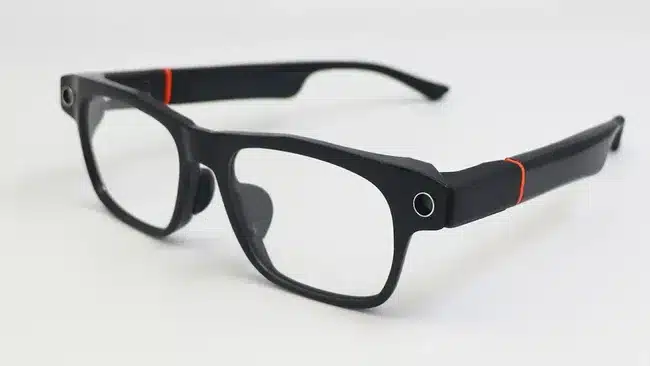The advent of artificial intelligence has brought about a wave of innovative technologies, transforming various aspects of our lives. Among these advancements, AI-powered smart glasses stand out as a groundbreaking development. These glasses, akin to having a second pair of ChatGPT-powered eyes, are set to revolutionize how we interact with the world around us. In this detailed article, we will explore the features, benefits, and potential applications of AI smart glasses, and how they could change our daily lives.
The Evolution of Smart Glasses
Smart glasses have been around for several years, with early models focusing primarily on augmented reality (AR) and heads-up displays. However, the integration of AI has taken these devices to a new level. AI smart glasses leverage advanced machine learning algorithms to provide real-time information, assistance, and interaction, making them far more than just a display screen.
Features of AI Smart Glasses
AI smart glasses come packed with a host of features designed to enhance user experience and productivity. Here are some of the standout features:
Real-Time Information Display
One of the most impressive features of AI smart glasses is their ability to display real-time information directly in the user’s field of vision. This can include anything from navigation directions to live translations of foreign languages. By overlaying useful data onto the real world, these glasses can provide immediate and relevant information without the need to look at a smartphone or other device.
Voice-Activated Assistance
Much like smart speakers and smartphones, AI smart glasses are equipped with voice-activated assistants. Powered by sophisticated AI models like ChatGPT, these assistants can understand and respond to natural language queries, perform tasks, and provide information. This hands-free interaction allows users to multitask and access information seamlessly.
Enhanced Augmented Reality
AI enhances the AR capabilities of smart glasses, making the augmented experience more intuitive and interactive. For example, the glasses can recognize objects in the environment and provide contextual information about them. They can also offer step-by-step guidance for tasks, overlaying instructions directly onto the objects involved.
Health and Fitness Tracking
AI smart glasses can also function as health and fitness trackers. Equipped with sensors, they can monitor various health metrics such as heart rate, activity levels, and even detect signs of fatigue or stress. This data can be analyzed in real-time to provide personalized health recommendations and alerts.
Benefits of AI Smart Glasses
The integration of AI into smart glasses offers numerous benefits that extend beyond traditional use cases. Here are some of the key advantages:
Increased Productivity
By providing real-time information and assistance, AI smart glasses can significantly boost productivity. Professionals in various fields, from healthcare to engineering, can benefit from hands-free access to data and instructions, reducing the time spent on looking up information and minimizing errors.
Enhanced Accessibility
AI smart glasses have the potential to greatly enhance accessibility for individuals with disabilities. For example, they can provide audio descriptions of visual elements for the visually impaired or offer real-time sign language interpretation for the hearing impaired. This technology can empower individuals to navigate their environments more independently and confidently.
Improved Safety
In industries where safety is paramount, such as construction and manufacturing, AI smart glasses can play a crucial role. They can provide workers with real-time safety alerts, monitor for hazardous conditions, and guide them through complex procedures. This can help prevent accidents and ensure that safety protocols are followed.
Personalized Experiences
The ability of AI to learn from user behavior and preferences allows AI smart glasses to offer highly personalized experiences. From customized notifications to tailored content recommendations, these glasses can adapt to the user’s needs and preferences, enhancing overall satisfaction and usability.
Potential Applications of AI Smart Glasses
The versatility of AI smart glasses opens up a wide range of potential applications across different sectors. Here are some areas where these glasses could make a significant impact:
Healthcare
In healthcare, AI smart glasses can assist doctors and nurses by providing real-time patient data, guiding them through procedures, and offering diagnostic support. Surgeons can use AR overlays to visualize complex anatomy during operations, while remote consultations can be enhanced with real-time video and data sharing.
Education
In education, AI smart glasses can create immersive learning experiences. Students can benefit from interactive AR lessons, real-time translations, and personalized learning support. Teachers can use these glasses to access educational resources and engage students with dynamic content.
Retail
Retailers can leverage AI smart glasses to enhance customer service and streamline operations. Employees can receive real-time inventory updates, access product information, and assist customers more efficiently. Shoppers can use the glasses to navigate stores, find products, and receive personalized recommendations.
Manufacturing
In manufacturing, AI smart glasses can improve efficiency and accuracy on the production line. Workers can receive step-by-step assembly instructions, real-time quality control feedback, and remote assistance from experts. This can lead to faster production times and higher quality products.
Tourism
Tourists can use AI smart glasses to enhance their travel experiences. The glasses can provide real-time translations, historical information about landmarks, and navigation assistance. This can help travelers explore new destinations with greater ease and understanding.
Challenges and Future Prospects
While AI smart glasses offer many exciting possibilities, there are also challenges to address. Privacy concerns, data security, and the need for robust AI algorithms are critical considerations. Additionally, the design and usability of the glasses must be optimized to ensure comfort and practicality for everyday use.
Looking ahead, the future of AI smart glasses is bright. As AI technology continues to advance, we can expect even more sophisticated features and applications. The integration of 5G connectivity, improved battery life, and enhanced AR capabilities will further expand the potential of these devices.
Conclusion
AI smart glasses represent a significant leap forward in wearable technology, offering a second pair of ChatGPT-powered eyes that can transform how we interact with the world. With features like real-time information display, voice-activated assistance, and enhanced AR, these glasses have the potential to increase productivity, enhance accessibility, and improve safety across various sectors. As technology continues to evolve, AI smart glasses will undoubtedly play a crucial role in shaping the future of human-computer interaction.
















